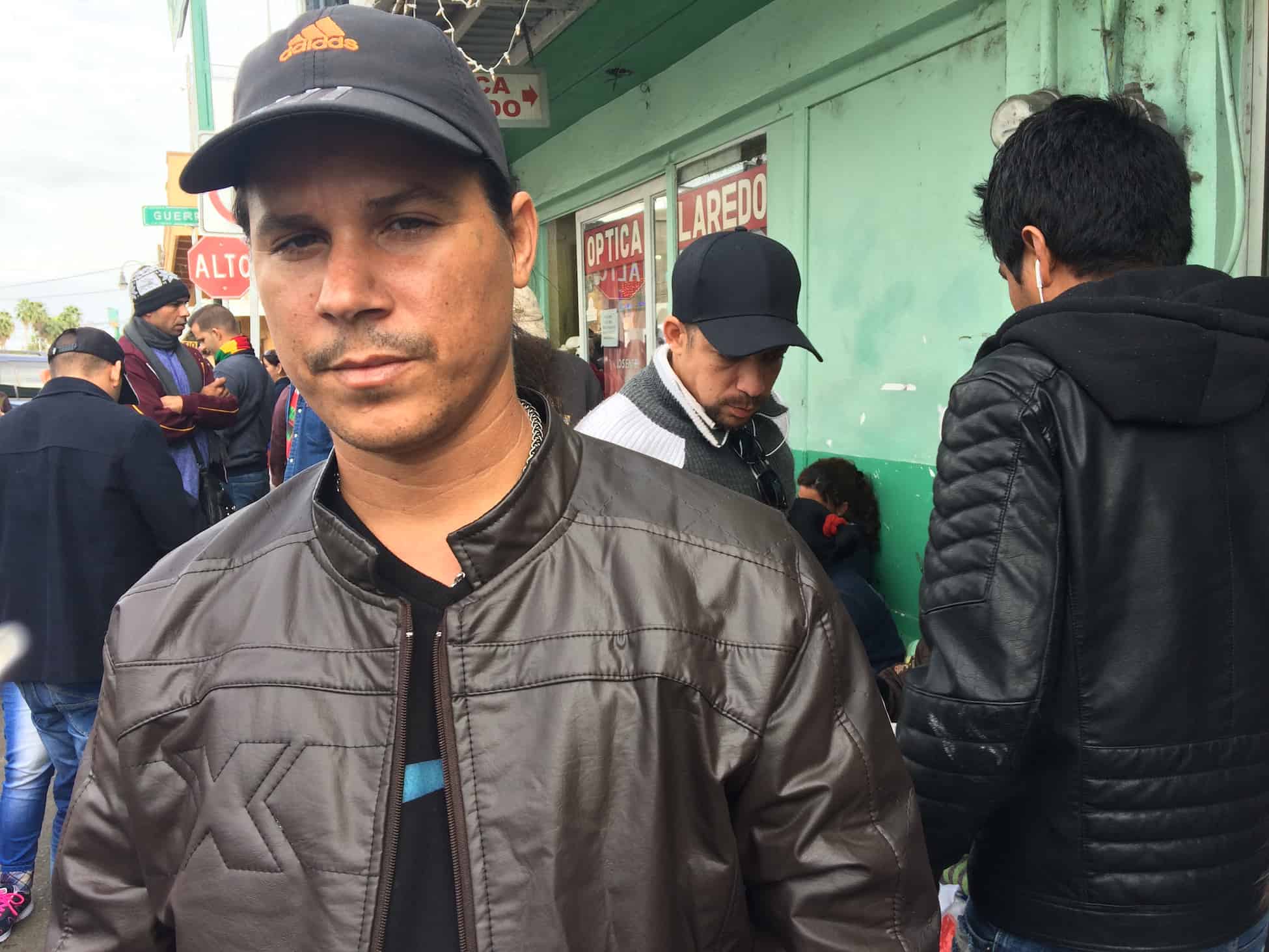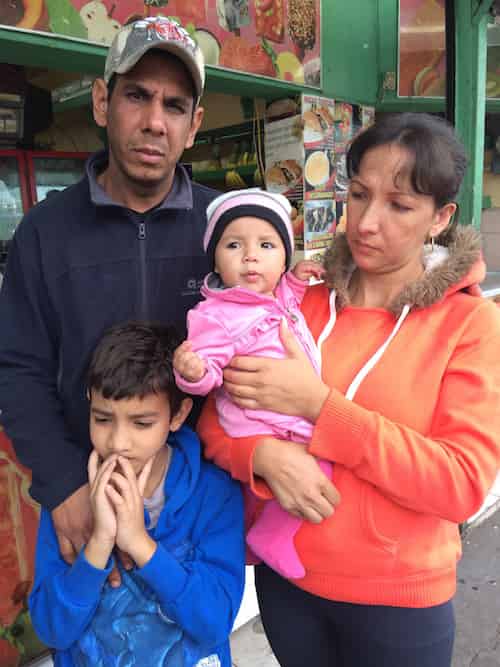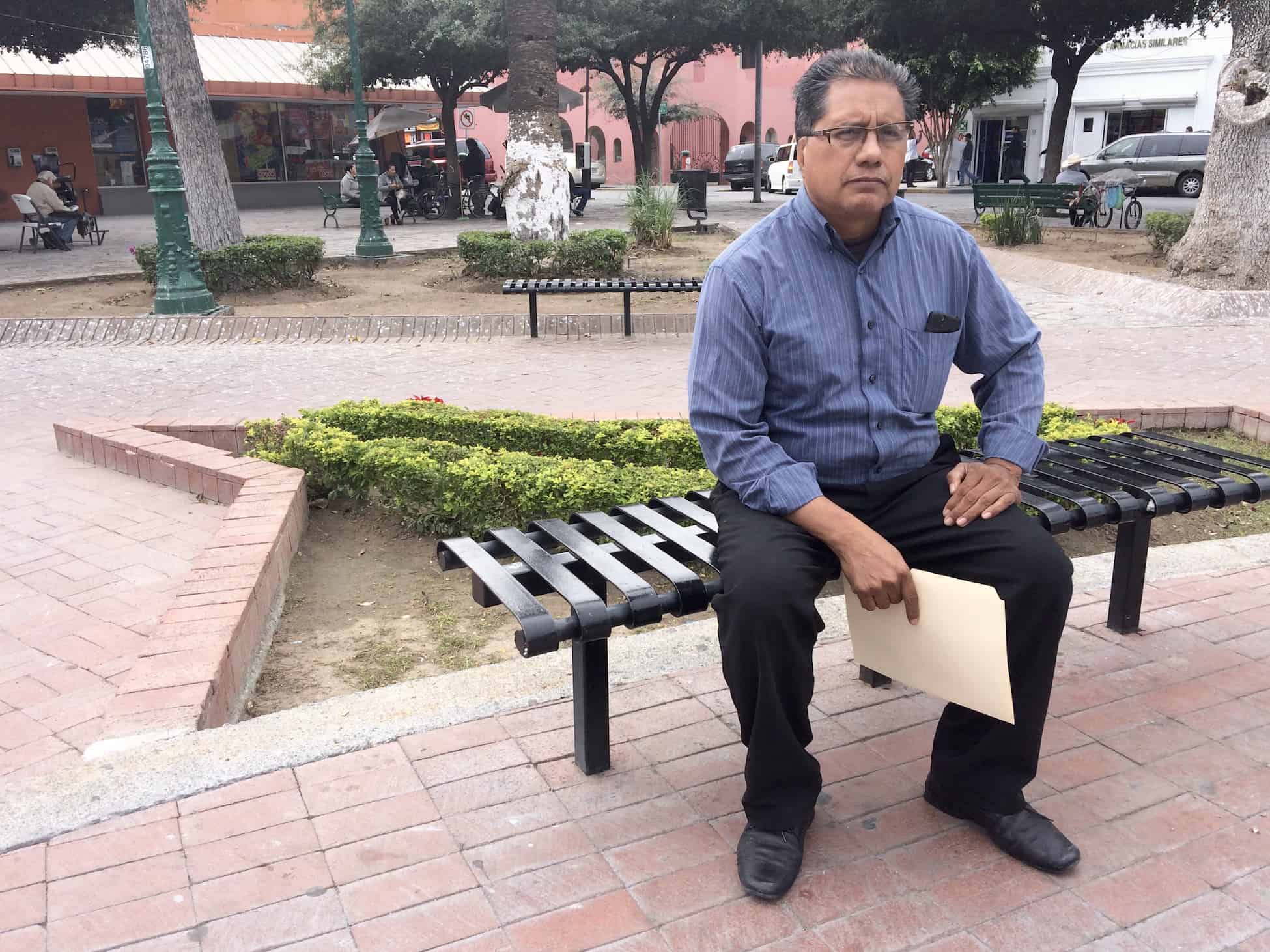After waiting all night at the foot of the Juarez-Lincoln International Bridge, Yojaine Fernandez, a brawny plumber who’d spent the previous five weeks migrating from Cuba to the U.S.-Mexico border, was first in line to enter Texas on Jan. 12.Immigration agents ushered Fernandez and several other Cubans into an office and began processing them for legal residency. But as the agents took photos, fingerprints, and biographical data, America’s so-called “wet foot, dry foot” policy, which for half a century had granted Cuban citizens automatic admission to the States, officially came to an end.And so, having arrived at the border one day too late, Fernandez was forced to return to Mexico.“Just imagine what that feels like,” the 34-year-old Fernandez said while standing on a street corner in the border city of Nuevo Laredo, within sight of the bridge that almost led him to America. “It was an awful blow — I was finally fulfilling my dream.” Fernandez scowled for a moment beneath his black Adidas hat. Then he brightened.“We have hope that President Trump will do something for us,” he said. “I’ll keep waiting here until he says something.”Both successful and prospective immigrants tend to dread the thought of a Trump administration, but Cubans desperate for passage into the U.S. are looking to the new president as their possible redeemer, hoping he will reverse President Obama’s sudden revocation of the wet foot, dry foot policy. There’s little reason to believe Trump, who campaigned on harsh immigration crackdowns, will make current U.S. immigration policy more liberal, but as hundreds of stunned Cubans wait in northern Mexico and continue trekking through Latin America, they can do little but cling to hopes that he will.The U.S. had considered Cubans political refugees since 1966, when thousands fled the Castro regime after the revolution. But in the wake of the normalization of U.S. relations with Cuban, Obama announced Jan. 12 that the U.S. would begin “treating migrants from Cuba like we treat migrants from all other countries.” Meanwhile Trump, who has called Cuba an “authoritarian island,” has threatened to “terminate the deal” with the island nation — though he has not clarified his plans.
Fernandez scowled for a moment beneath his black Adidas hat. Then he brightened.“We have hope that President Trump will do something for us,” he said. “I’ll keep waiting here until he says something.”Both successful and prospective immigrants tend to dread the thought of a Trump administration, but Cubans desperate for passage into the U.S. are looking to the new president as their possible redeemer, hoping he will reverse President Obama’s sudden revocation of the wet foot, dry foot policy. There’s little reason to believe Trump, who campaigned on harsh immigration crackdowns, will make current U.S. immigration policy more liberal, but as hundreds of stunned Cubans wait in northern Mexico and continue trekking through Latin America, they can do little but cling to hopes that he will.The U.S. had considered Cubans political refugees since 1966, when thousands fled the Castro regime after the revolution. But in the wake of the normalization of U.S. relations with Cuban, Obama announced Jan. 12 that the U.S. would begin “treating migrants from Cuba like we treat migrants from all other countries.” Meanwhile Trump, who has called Cuba an “authoritarian island,” has threatened to “terminate the deal” with the island nation — though he has not clarified his plans. Diaz, who said he studied economics and served in the Cuban Marines, fled Cuba two years ago with his family and worked in Ecuador for two years saving money to migrate to the States, a two-month journey that included hiking through the notoriously dangerous and remote Darién Gap straddling Colombia and Panama.“I’d go to prison in Cuba for what I said about the administration,” Diaz said while holding his baby daughter. “I left for political problems. I love the country but I don’t agree with the system.”Migrants waiting in Nuevo Laredo were eager to share their stories: crossing 13 countries to get here, selling all their belongings, spending days in detention centers in Mexico awaiting approval to continue north. One woman said she had to be airlifted out of the jungle by helicopter because she’d become so dehydrated after days of hiking.As the Cubans congregated on the corner, leaning against the faded stucco wall of a money exchange store and eyeglass shop — nearby store owners said they had become friendly with the Cubans, and one had even offered one a job — a cluster of men gathered around a visitor from the U.S.“Here I feel like I’m with my family,” said Rainier Prado, a Cuban-American who had migrated to the U.S. five years earlier and now lives in West Texas, where he’s working to save money to bring his wife and child to the States. His advice for the migrants?“They should wait to see what Trump does.”
Diaz, who said he studied economics and served in the Cuban Marines, fled Cuba two years ago with his family and worked in Ecuador for two years saving money to migrate to the States, a two-month journey that included hiking through the notoriously dangerous and remote Darién Gap straddling Colombia and Panama.“I’d go to prison in Cuba for what I said about the administration,” Diaz said while holding his baby daughter. “I left for political problems. I love the country but I don’t agree with the system.”Migrants waiting in Nuevo Laredo were eager to share their stories: crossing 13 countries to get here, selling all their belongings, spending days in detention centers in Mexico awaiting approval to continue north. One woman said she had to be airlifted out of the jungle by helicopter because she’d become so dehydrated after days of hiking.As the Cubans congregated on the corner, leaning against the faded stucco wall of a money exchange store and eyeglass shop — nearby store owners said they had become friendly with the Cubans, and one had even offered one a job — a cluster of men gathered around a visitor from the U.S.“Here I feel like I’m with my family,” said Rainier Prado, a Cuban-American who had migrated to the U.S. five years earlier and now lives in West Texas, where he’s working to save money to bring his wife and child to the States. His advice for the migrants?“They should wait to see what Trump does.” Pastor Aaron Mendez Ruiz, who runs Casa de Migrante Amar, a 100-person shelter in Nuevo Laredo where migrants have flocked, said that he doesn’t believe Trump will change anything. Nonetheless, he encourages the migrants and makes space for as many as possible; he believes there are currently about 130 in the city. Though most residents of Nuevo Laredo have expressed sympathy and kindness, the migrants are easy targets for gangs.Despite the efforts of Ruiz and others, the Cubans may not be able to stay much longer. On Wednesday the Mexican government announced it planned to deport Cubans waiting in the border city, though it was unclear when deportations would begin or if there would be any way to apply to stay in the country. The migrants were not yet aware of the plan, but Ruiz said he read the news with dread.“This was their opportunity and they lost it,” Ruiz said. “But I’ll let them stay as long as they need… I can’t abandon them.”Meredith Hoffman is a freelance journalist based in Austin who has reported from South and Central America, Europe, New York, and throughout Texas. She regularly writes on immigration for VICE.
Pastor Aaron Mendez Ruiz, who runs Casa de Migrante Amar, a 100-person shelter in Nuevo Laredo where migrants have flocked, said that he doesn’t believe Trump will change anything. Nonetheless, he encourages the migrants and makes space for as many as possible; he believes there are currently about 130 in the city. Though most residents of Nuevo Laredo have expressed sympathy and kindness, the migrants are easy targets for gangs.Despite the efforts of Ruiz and others, the Cubans may not be able to stay much longer. On Wednesday the Mexican government announced it planned to deport Cubans waiting in the border city, though it was unclear when deportations would begin or if there would be any way to apply to stay in the country. The migrants were not yet aware of the plan, but Ruiz said he read the news with dread.“This was their opportunity and they lost it,” Ruiz said. “But I’ll let them stay as long as they need… I can’t abandon them.”Meredith Hoffman is a freelance journalist based in Austin who has reported from South and Central America, Europe, New York, and throughout Texas. She regularly writes on immigration for VICE.
Advertisement

Advertisement
Every day in Nuevo Laredo, a crowd of Cubans — families, seniors, groups of friends, individuals whose relatives are in the U.S. — pack the street corner across from Juarez-International Bridge, hoping the border guards will again allow them to cross. The Cubans huddle there from dawn until nightfall, and more arrive each day after completing their journeys through Latin America. They pass around food and clothing donations from local churches, and share snacks and stories.“We were in a bus just six miles from here when my friend messaged me on Facebook that the law had changed to stop letting in Cubans — none of us could believe it,” said Angel Diaz, 38, who reached Nuevo Laredo with his wife, 6-month-old daughter, and 8-year-old son on Jan. 12. “Our plans are to wait with a lot of patience and calm, and to see what Trump does.”

Advertisement

